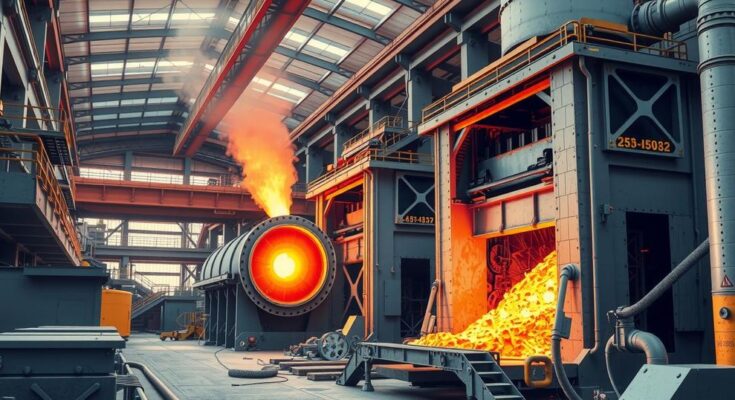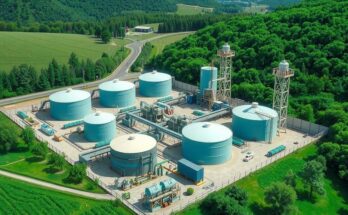Prince Shuaibu Abubakar Audu, Nigeria’s Minister of Steel Development, stated that the National Steel Raw Materials Exploration Agency is vital to the nation’s goal of reaching a $1 trillion economy by 2030. He discussed plans to rehabilitate the Ajaokuta Steel Company, promote import substitution, and attract foreign investments to boost domestic steel production. A summit for stakeholders and advancements in relevant legislation were also highlighted.
Prince Shuaibu Abubakar Audu, Nigeria’s Minister of Steel Development, emphasized the critical role of the National Steel Raw Materials Exploration Agency (NSRMEA) in the federal government’s strategy to elevate the economy to $1 trillion by 2030. During a recent visit in Kaduna, Audu highlighted the necessity of rehabilitating the Ajaokuta Steel Company under President Bola Tinubu’s leadership, given that Nigeria currently imports about $4 billion worth of steel annually.
Audu advocated for import substitution to alleviate pressure on the nation’s foreign exchange reserves, asserting that achieving the desired steel production levels hinges on maximizing the agency’s operational capacity. He praised NSRMEA for its commendable performance, noting it ranks among the top agencies in his ministry.
The minister announced initiatives to collaborate with the Ministry of Defence and the Defence Industries Corporation of Nigeria (DICON) to produce military hardware. “One of President Bola Tinubu’s key objectives is the rehabilitation of Ajaokuta Steel Company,” Audu stated, mentioning a Memorandum of Understanding (MoU) with DICON that awaits presidential approval.
Plans for a summit aimed at uniting steel sector stakeholders to formulate a comprehensive growth strategy are also underway. Moreover, Audu shared updates on the Metallurgical Industry Bill, which has successfully passed its second reading in the House of Representatives. He indicated that this bill would create a regulatory framework to aid governance and development in the steel sector upon its enactment.
Furthermore, the federal government is actively seeking foreign direct investments (FDIs) in the steel industry. Following President Tinubu’s visit to New Delhi in September 2023, a commitment was secured for producing five million metric tonnes of steel in Nigeria. A Chinese investment of $300 million toward a steel plant in Ogun State is expected to significantly enhance the nation’s steel production capabilities. Audu expressed confidence that the current reforms would rejuvenate the industry, aiming to achieve a target of producing 10 million metric tonnes of steel annually.
In conclusion, Prince Shuaibu Abubakar Audu’s statements underscore the Nigerian government’s commitment to revitalizing the steel sector as a cornerstone of economic growth. Through partnerships, legislative initiatives, and foreign investments, Nigeria aims to reduce dependency on steel imports while significantly increasing domestic production capacity. The ongoing reforms hold promise for achieving ambitious production targets and establishing a robust steel industry.
Original Source: www.thisdaylive.com




